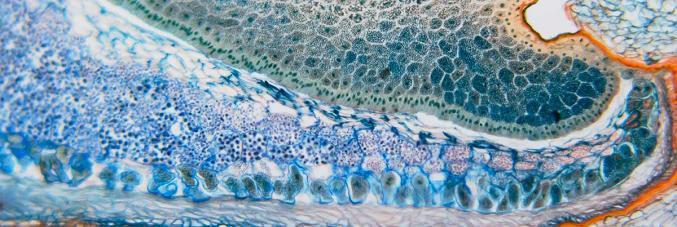
The Fascin 1 protein that "hardens" cancer cells and promotes proliferation
23.06.2021
A study was conducted by a University of Padua research team coordinated by Prof Sirio Dupont in collaboration with Prof Calvisi from the University of Regensburg (Germany) team and published in Communications Biology, is entitled, Fascin1 empowers YAP mechanotransduction and promotes cholangiocarcinoma development. The research highlights a new mechanism that contributes to the onset of cholangiocarcinoma cancer formed in the bile duct with no particular symptom present making it difficult to diagnose.
Prof Dupont, from Department of Molecular Medicine at the University of Padua, explains, “The cells in our body can feel the mechanical properties of tissues, such as softness or hardness. When tissue is soft, cells tend to remain quiescent, while when tissue is rigid, cell proliferate by activating factors called YAP / TAZ. This mechanism can be exploited during the development of some types of cancer as the hardening of a tumor promotes cancer cells to multiply, allowing them to migrate more effectively and disperse into surrounding tissues. Hardening of a tumor is usually achieved by changing the composition of the extracellular matrix, a dense network of proteins surrounding cells.”
Dr. Arianna Pocaterra from Prof Dupont's research group describes the finding, “We have discovered a new mechanism by which cancer cells harden themselves from the inside by modifying their cytoskeleton instead of modifying their extracellular matrix. The cytoskeleton is a type of scaffolding that supports and shapes cells. This mechanism occurs in particular cancer of the liver called intrahepatic cholangiocarcinoma."
This research identifies a potential molecular target to deactivate a mechanism that promotes tumor growth.
Funding for this study was made possible by the Italian Association for Cancer Research (AIRC).



